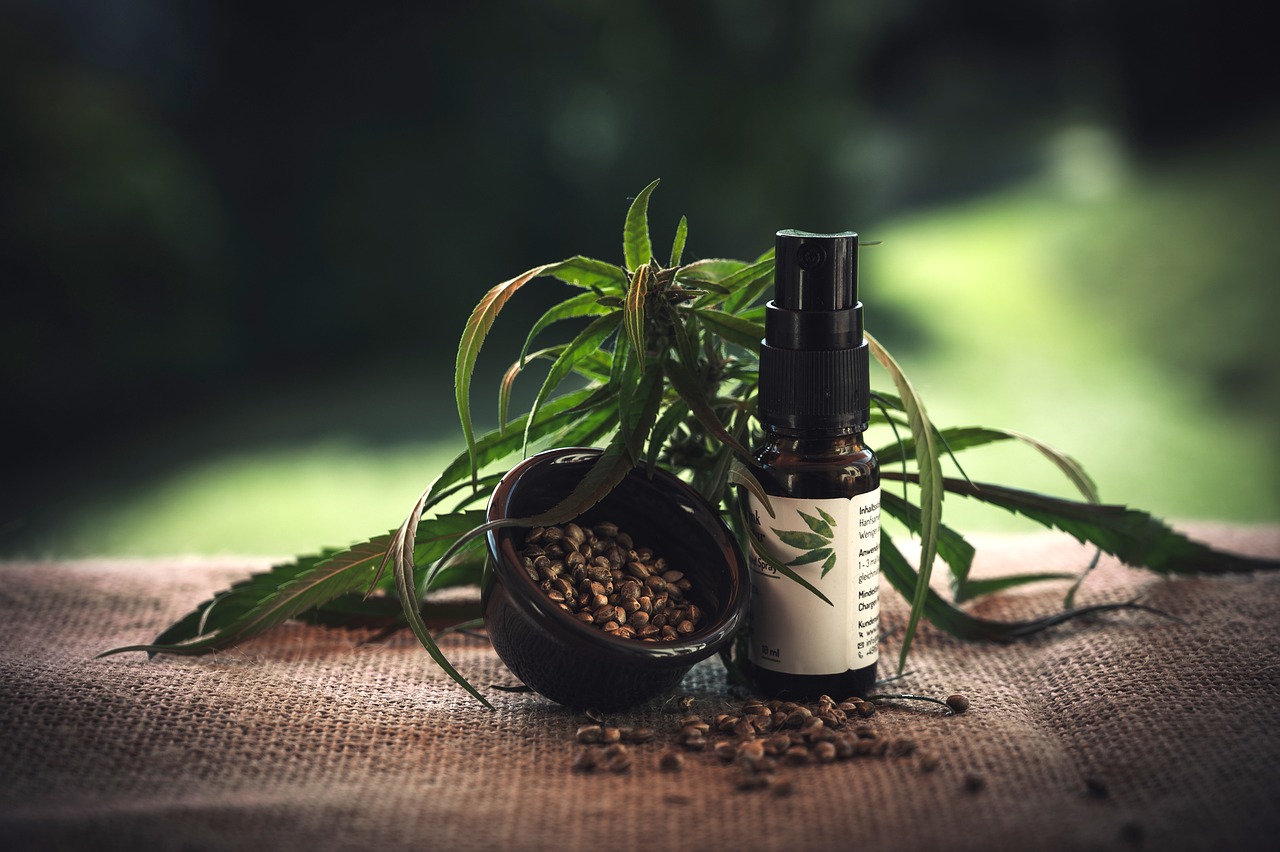Mood-Elevating Smart Drugs: Boost Your Mood and Stay Sharp
Feeling mentally drained? Maybe you’re looking for something more than coffee but don’t want to feel “wired” all day. That’s where mood-elevating smart drugs come in. These nootropics aren’t just for focus; they’re designed to boost mood, ease anxiety, and give you a mental lift without the jitters or crash.
Key Takeaways
- Best nootropics are often chosen for their potential to enhance mood and cognitive function.
- Nootropics may improve memory, mood, and cognitive performance in the short term.
- Rhodiola rosea and bacopa monnieri are popular nootropics for mood and memory support.
- Many nootropics are available as dietary supplements, with both natural and synthetic options.
- Some nootropics are available without a prescription, while others, like certain “smart drugs,” require one.
- Nootropics may benefit brain health and support cognitive function, especially for older adults.
- Effects of nootropics on anxiety and depression are promising but vary depending on the specific supplement.
Let’s dive into how mood-elevating smart drugs work, the types you might try, and why they’re gaining traction as a go-to for productivity and emotional balance.
What Are Mood-Elevating Smart Drugs?
Mood-elevating smart drugs are like a turbo boost for your brain’s mood center. Unlike the standard caffeine rush, these drugs target specific neurotransmitters—think dopamine and serotonin—to elevate your mood and help you feel clear-headed and positive.
People are getting hooked on these smart drugs not for a high, but for a steady, controlled boost in mood that doesn’t sacrifice clarity or focus. Here’s why they’re becoming the “it” tool:
- Long-Lasting Effects: Instead of a quick energy zap, these drugs offer a sustained sense of well-being.
- Natural and Synthetic Options: From herbs like Rhodiola Rosea to lab-based options like Modafinil, there’s something for everyone’s comfort level.
- Anxiety Reduction: Mood-elevating nootropics can calm the mind, making it easier to handle stress and social situations.
Most people searching for mood-boosting nootropics are professionals, students, and creatives who need to be “on” mentally without the side effects of standard stimulants. The Silicon Valley crowd? They’ve been using these smart drugs for years. Now, the rest of us are catching on.
How Mood-Elevating Smart Drugs Work
Smart drugs, also called nootropics, influence brain chemistry. They’re all about neurotransmitters—the tiny chemical messengers that dictate your mood, energy, and focus. Here’s a breakdown of the big players when it comes to mood-elevating smart drugs:
Dopamine Boosters
Dopamine is your “feel-good” hormone. When you get a compliment, win a game, or have a satisfying meal, dopamine floods your brain. Mood-elevating nootropics can mimic this by gently increasing dopamine levels, so you feel motivated and positive without a huge spike or crash.
Some dopamine-enhancing options include:
- L-Theanine: Found in green tea, it’s popular for calming the mind and enhancing mood without making you drowsy.
- Phenibut: Used in some European countries to fight anxiety and depression. But be cautious with this one; it’s potent and can be habit-forming.
Serotonin Enhancers
Serotonin impacts mood and emotional balance. When serotonin levels are right, you feel calm and emotionally stable. When they’re low? Anxiety and irritability can take over. Nootropics that boost serotonin can help create that calm, balanced mood people crave.
Top serotonin boosters in the nootropic world:
- 5-HTP: A naturally occurring amino acid that’s used as a building block for serotonin.
- Ashwagandha: An adaptogen that helps manage stress and anxiety while promoting a feeling of well-being.
GABA and Anxiety Relief
For those prone to anxiety, GABA (Gamma-Aminobutyric Acid) is key. It’s like your brain’s “brake pedal,” slowing down overactive neurons and promoting relaxation.
Popular GABA-focused nootropics include:
- L-Theanine: Again, yes. This amino acid is not only good for dopamine but also stimulates GABA, giving it double-duty in stress relief.
- Rhodiola Rosea: This adaptogenic herb helps the body deal with stress and prevents burnout by targeting GABA receptors.
By targeting these brain chemicals, mood-elevating smart drugs offer a more natural, consistent, and manageable mood lift. They’re appealing because they’re a softer alternative to traditional antidepressants or anxiety meds, and they can make a real difference in both mood and productivity.
Types of Mood-Boosting Nootropics
Not all mood-boosting nootropics are created equal. Whether you’re a natural supplement fan or don’t mind trying synthetic options, there’s something for every comfort level and need. Here are three main types of mood-elevating smart drugs to consider:
Natural Mood Enhancers
These are herbs and adaptogens that have been around for centuries, used in everything from traditional medicine to modern wellness practices.
- Rhodiola Rosea: Known for reducing fatigue and stress, Rhodiola is a powerful herb that’s popular in Europe and gaining a following in the U.S. It’s great for resilience under pressure and provides a smooth mood boost.
- Ashwagandha: This herb is part of traditional Ayurvedic medicine and has been shown to reduce cortisol levels (a major stress hormone). Great for calming nerves without making you feel sluggish.
- L-Theanine: Found naturally in green tea, L-Theanine promotes relaxation and focus. It’s popular because it’s effective and gentle, offering a mood lift without any buzz.
Synthetic Nootropics
Synthetic options can be more potent, with some even used off-label for anxiety and depression. But with power comes responsibility—many synthetic nootropics have strict usage guidelines and potential side effects.
- Modafinil: Originally designed for narcolepsy, Modafinil has earned a reputation as a mood and productivity booster. It’s a favorite in Silicon Valley for its ability to keep people alert and uplifted for hours.
- Phenibut: Originally from Russia, Phenibut helps reduce social anxiety and improve mood. However, it’s a tricky one—Phenibut can be habit-forming, so it’s wise to use it sparingly.
Important: Always check with a medical professional before diving into synthetics. Synthetic nootropics are generally more powerful but may carry risks, especially with frequent use.
Vitamins & Amino Acids for Mood Support
Some mood-elevating smart drugs are simple vitamins and amino acids that our brains need for optimal function. These can offer a mood lift by supporting overall brain health.
- B Vitamins: These are crucial for energy and mental clarity. Low B vitamin levels can lead to irritability and low mood, so adding them can make a real difference.
- Magnesium: Known as the “relaxation mineral,” magnesium helps with anxiety and is often recommended for people who feel constantly stressed.
- 5-HTP: This amino acid is a precursor to serotonin and can naturally elevate mood. It’s especially popular among those looking for a natural way to feel better emotionally.
Mood-boosting nootropics can help you navigate life with more positivity and calm. They’re a serious contender for those seeking a more balanced, controlled mood lift without sacrificing mental clarity or falling into the trap of caffeine and sugar highs.
Using mood-elevating smart drugs is all about balance. Whether you’re easing into natural options like Ashwagandha and Rhodiola Rosea or exploring the focus-driven Modafinil, these nootropics have potential if used mindfully.
The mood-elevating smart drug market is expanding because people want more than just an energy boost; they’re looking for a smoother, happier headspace to power through the day. So if you’re tired of relying on coffee and energy drinks, it’s worth exploring what these mood-boosting nootropics have to offer.
The Real Benefits and Risks of Mood-Elevating Smart Drugs
Curious if mood-elevating smart drugs can really make you feel better without the usual crash?
These nootropics promise more than a productivity boost—they’re also about calm, focus, and lifting your mood. But before jumping in, let’s look at the benefits, risks, and how to choose the best mood-boosting smart drug that actually fits your needs.
Benefits of Mood-Boosting Smart Drugs
Smart drugs for mood aren’t just for focus—they can take your emotional state up a notch, helping you get more out of your day without burnout.
Here’s what makes mood-elevating smart drugs so appealing:
- Better Emotional Resilience: Adaptogens like Rhodiola Rosea and Ashwagandha can reduce stress and anxiety, making you less likely to sweat the small stuff.
- Overall Mental Clarity: Nootropics like Modafinil and L-Theanine support brain function, which means you’re less distracted by negative thoughts and more tuned into what matters.
- Social Comfort and Anxiety Relief: Smart drugs like Phenibut are popular for reducing social anxiety, which can make you feel more at ease in social settings.
Many people find that mood-boosting nootropics help them feel emotionally lighter, more focused, and confident. This is why they’re especially popular among people who want a better mental edge in stressful environments—think professionals in Silicon Valley or entrepreneurs navigating high-pressure situations.
Improved Focus and Productivity
One of the best side effects of mood-elevating smart drugs? Productivity. When your mood is elevated, it’s easier to stay motivated, focus longer, and achieve more without constant distractions or negative self-talk.
Which mood-elevating smart drugs can help here?
- Modafinil: Known for its wakefulness-boosting properties, Modafinil doesn’t just keep you alert; it helps you stay positive and focused, even during long work sessions.
- L-Theanine + Caffeine Stack: A popular combination in the nootropic community, this stack brings calm clarity without the caffeine jitters. L-Theanine balances the caffeine boost, promoting a more stable mood and energy level.
Studies and Clinical Insights
While there’s still a lot to learn about mood-boosting nootropics, some promising studies are beginning to confirm what early users have been saying. For instance:
- Ashwagandha has been shown to reduce cortisol (a stress hormone) and improve overall emotional stability.
- 5-HTP: Known to help serotonin production, 5-HTP has been used to combat symptoms of mild depression and promote a stable mood.
Clinical studies show potential for these supplements to support mood balance, but mood-elevating smart drugs are not a cure-all. They offer short-term improvements and mood support, but lifestyle factors (like sleep and diet) play a major role in how effective these supplements will actually be.
Risks and Considerations for Use
Mood-boosting nootropics have a ton of potential, but like anything, there are risks to keep in mind. Going in with the right knowledge helps you avoid unwanted side effects or over-relying on these supplements.
Here are some things to consider before diving in.
Possible Side Effects and Dependency
Not all mood-elevating smart drugs are risk-free, especially if they’re synthetic or used in higher-than-recommended doses.
Common risks include:
- Modafinil: Can cause headaches, nausea, and in rare cases, dependency if overused.
- Phenibut: This is one of the strongest nootropics for mood, but it can lead to tolerance quickly, making it necessary to take breaks between uses. Overuse can lead to dependency and withdrawal symptoms.
Natural options like Rhodiola Rosea and Ashwagandha are generally safer and easier to incorporate daily, but even they can cause mild side effects if taken in very high doses.
Avoiding side effects comes down to proper dosage and avoiding overuse. Mood-boosting nootropics aren’t meant to be taken in extreme doses, and they’re not a replacement for genuine mental health care.
Regulation and Safety Concerns
Smart drugs for mood are largely unregulated in many parts of the world, including the U.S. This lack of oversight can lead to inconsistent product quality, especially if you’re buying nootropics online from unknown sources.
Consider these points:
- FDA and Legal Regulations: The FDA doesn’t strictly regulate nootropics, so it’s important to research brands thoroughly. Reputable brands like Onnit and HVMN are known for quality control and third-party testing.
- Natural vs. Synthetic: For beginners, sticking to natural mood-enhancing supplements may feel safer. Natural mood enhancers are generally lower risk, but it’s still wise to source them from reputable suppliers.
The safest route? Stick to reputable brands, check ingredient lists, and talk to a healthcare provider if you’re unsure. High-quality, lab-tested products are a must to avoid the potential dangers of unregulated or off-label supplements.
Ethical and Social Concerns
The rising popularity of smart drugs for productivity and mood has raised some ethical questions in the biohacking and nootropics community. For example:
- Is it fair? Some people worry that mood-boosting nootropics give users an unfair advantage in high-stakes environments like finance or tech.
- Personal Health Impact: Not every user is the same, and individual health risks vary. Some synthetic nootropics can affect health in the long run if not monitored properly.
While mood-elevating smart drugs can help with mental performance, they’re not a replacement for good lifestyle habits. Regular use without careful monitoring can lead to long-term issues, so awareness is key.
Choosing the Right Mood-Elevating Smart Drug
Choosing a mood-elevating smart drug depends on your specific needs, lifestyle, and comfort level with natural vs. synthetic supplements.
Here’s how to narrow down your options.
Factors to Consider
- Your Goals: Are you looking for a mild mood lift or something to combat social anxiety? For a gentle lift, Ashwagandha or L-Theanine could be ideal. For deeper support, Modafinil might be more effective.
- Tolerance for Side Effects: If you’re sensitive to side effects, start with natural mood enhancers. Phenibut may help with social anxiety but carries a higher risk of dependency, so proceed with caution.
- Lifestyle: People with high-stress jobs may benefit from regular Rhodiola Rosea or 5-HTP, both of which support resilience under pressure.
Guidance on Dosage and Stacking
When it comes to mood-boosting nootropics, stacking (combining supplements) can maximize benefits while reducing the risk of overdoing it.
Popular stacks include:
- L-Theanine + Caffeine: Known for smooth energy and focus, this stack works wonders for mood without the jitters of straight caffeine.
- Ashwagandha + Rhodiola Rosea: This adaptogen combo is powerful for stress management and maintaining calm focus.
Start with the minimum recommended dose and see how your body responds. Tracking your effects daily can help you adjust as needed. Some people find they only need a small amount to feel balanced, while others may require a bit more.
Where to Buy Quality Mood-Elevating Smart Drugs
When you’re ready to try mood-elevating smart drugs, sourcing quality products is essential.
Some trustworthy brands include:
- Onnit: Known for transparency and quality, Onnit sells a variety of natural nootropics.
- HVMN (formerly Nootrobox): This brand focuses on clean, well-researched formulas with a range of products for mood, focus, and energy.
Online stores and nootropic consultations can also offer advice on finding the right supplements, especially for beginners. Quality is everything, so it’s worth investing in reputable brands to ensure a safe, effective experience.
Mood-elevating smart drugs are an exciting tool for anyone seeking emotional balance, productivity, and resilience in today’s busy world. With a thoughtful approach, they can be a game-changer in managing mood and mental clarity.
FAQ
1. What are nootropics, and how do they work?
Nootropics, often called “smart drugs” or cognitive enhancers, are supplements that may improve brain function, boost mood, and enhance cognition. They work by influencing neurotransmitter levels or improving blood flow to the brain, which can support memory, alertness, and overall cognitive performance. Popular options include l-theanine, modafinil, and ginseng.
2. Are nootropics safe to use?
Many natural nootropics, such as rhodiola rosea and l-theanine, are generally safe for healthy people when used as directed. However, synthetic nootropics like modafinil require a prescription and are mainly for treating conditions like ADHD and narcolepsy. Always consult a healthcare provider to ensure safe and appropriate use.
3. What are the benefits of using nootropic supplements?
Nootropic supplements may improve brain function, support memory, and enhance mood. For example, l-theanine may aid in focus, while bacopa monnieri has been shown to support memory and learning. However, the benefits may vary, and more research is needed to confirm long-term effects.
4. Can nootropics help improve mood and reduce anxiety?
Yes, some nootropics are known for mood-boosting effects. Rhodiola rosea, for instance, may help reduce anxiety and improve mood. However, those with mental health concerns should seek medical advice before starting any nootropic, as effects vary between individuals.
5. Do I need a prescription for nootropics?
Many natural nootropics, like ginseng and rhodiola rosea, are available over-the-counter as dietary supplements. However, synthetic nootropics like modafinil require a prescription and are prescribed for specific conditions such as narcolepsy and ADHD.



